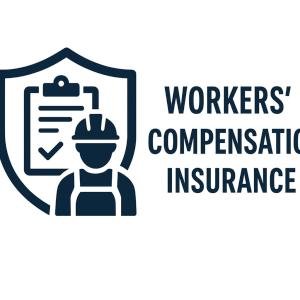In today’s fast-evolving business environment, ensuring compliance and operational readiness is paramount-especially within specialized sectors such as IT staffing. For Georgia-based IT staffing firms, managing Workers’ Compensation audits effectively is critical too maintaining financial stability and regulatory adherence. This article delves into best practices and strategic approaches to audit planning, offering a thorough guide tailored to the unique challenges faced by IT staffing companies in Georgia. By understanding the audit process, key documentation requirements, and proactive risk management, organizations can streamline their compliance efforts and safeguard their workforce investments.
table of Contents
Audit Readiness Strategies for Georgia IT Staffing Firms
For georgia IT staffing firms, maintaining thorough and organized documentation is paramount to navigating a workers’ comp audit successfully.This includes detailed payroll records, robust job classifications aligned with Georgia’s specific industry codes, and accurate reporting of billable hours for each contractor or employee. Firms should implement a systematic process for updating payroll and timesheet data in real time,enabling prompt retrieval during audits. Additionally, conducting internal pre-audit reviews periodically allows staffing leaders to identify discrepancies early, reducing the risk of financial penalties or increased premiums.
Key strategies to enhance audit preparedness include:
- Regularly reconciling payroll with staffing contracts and client billings
- Training HR and finance teams on workers’ comp compliance nuances specific to IT staffing
- Utilizing specialized software tailored for workforce classifications and tracking
- collaborating with legal and insurance advisors to stay current on Georgia state regulations
| Audit Element | Recommended Action | Frequency |
|---|
| Payroll Accuracy | Monthly reconciliation with client contracts | Monthly |
| Employee Classification | Quarterly review to ensure correct job codes | Quarterly |
| Documentation updates | Immediate entry of timesheets and changes | Continuous |
| Compliance Training | Semi-annual sessions for relevant staff | Bi-annually |
Comprehensive Documentation Practices for Workers’ Compensation Compliance
Maintaining meticulous records is pivotal in navigating the complexities of workers’ compensation compliance within the Georgia IT staffing industry. Employers should implement a systematic approach to documentation that captures all facets of the employee’s work history, injury details, and medical treatment records. Key documents to prioritize include:
- Employee job descriptions that accurately reflect duties and risk exposure
- Incident and injury reports completed promptly and thoroughly
- Medical records and return-to-work certifications to monitor treatment progress
- Claim correspondence tracking interaction with insurers and legal representatives
Utilizing a centralized digital filing system enhances accessibility and audit-readiness, allowing staff to retrieve critical documents effortlessly.Regularly updating and reviewing these records ensures that the staffing firm can respond to insurance auditors with confidence, minimizing delays and potential penalties.
| Documentation Type | Purpose | Recommended Review Frequency |
|---|
| Job Descriptions | Clarify work-related hazards | Annually or with role changes |
| Incident Reports | Detail injury circumstances | Promptly after an event |
| Medical Records | Track treatment and recovery | Ongoing throughout claim |
| Claim Correspondence | Maintain audit trail of communications | As interactions occur |
Risk Management Approaches Tailored to IT Staffing Employees
In the dynamic landscape of IT staffing, traditional risk management strategies often fall short of addressing unique workplace challenges. Tailoring approaches ensures that specific hazards such as ergonomic injuries from prolonged computer use, repetitive strain injuries, and stress-related conditions are effectively mitigated. Proactive measures like periodic workstation assessments, employee wellness programs, and targeted training on proper equipment use not only reduce claim frequency but also foster a culture of safety. Emphasizing open communication channels for reporting early symptoms encourages timely intervention,minimizing downtime and medical costs.
Key components of an effective risk management plan for IT staffing employees include:
- Regular ergonomic audits customized to diverse home and office setups
- Stress management workshops specific to IT project pressures
- Implementation of flexible schedules to reduce burnout risks
- Clear policies on remote work safety protocols
| Risk Factor | Mitigation Strategy | Expected Outcome |
|---|
| Repetitive Strain | Ergonomic Training & Break Schedules | Reduced Injury Claims |
| Work-Related Stress | Wellness Programs & Flexible Hours | Improved Employee Retention |
| Remote Workspace Hazards | home Setup Audits & Safety Guidelines | Lower Incident Reports |
Best practices for Streamlining Workers’ Compensation Audits in Georgia
To efficiently navigate workers’ compensation audits in Georgia, its crucial to maintain accurate and current records. This includes detailed payroll reports,self-reliant contractor documentation,and classification codes tailored to your IT staffing services. Ensuring your payroll data aligns with state requirements reduces the risk of costly adjustments and penalties. Additionally, implementing a centralized system for storing audit-related documentation facilitates quick retrieval during the audit process, saving both time and resources.
Preparation extends beyond documentation. Develop a clear communication plan with your insurance carrier and auditor to preempt confusion. Consider these focused steps:
- Regularly review policies for classification accuracy and employee misclassification risks
- conduct internal audits periodically to catch discrepancies early
- Leverage technology to automate payroll data collection and reporting
- train HR and finance teams on audit expectations and compliance mandates
| Audit Preparation Step | Purpose |
|---|
| data Validation | Ensures accuracy of payroll and classification data |
| Policy Review | Identifies risks and updates compliance measures |
| Communication Planning | Facilitates smooth auditor interactions |
| Team Training | Enhances internal readiness and reduces errors |
Q&A
Q&A: Audit Preparation for Georgia IT Staffing Workers’ compensation
Q1: What is the importance of audit preparation for workers’ compensation in Georgia’s IT staffing industry?
A1: Audit preparation is crucial because it ensures accurate classification of employees and proper reporting of payroll for workers’ compensation insurance. For IT staffing firms in georgia, this process helps avoid costly penalties, underpayment, or overpayment of premiums, and ensures compliance with state regulations.
Q2: How does workers’ compensation auditing work for IT staffing companies in Georgia?
A2: Workers’ compensation audits typically occur annually and involve the insurer reviewing payroll records,contracts,and documentation to verify that premiums paid align with actual risk exposures. For IT staffing firms, this means confirming the correct classification of placed employees, including temporary and contract workers, and validating payroll totals for each classification.
Q3: What are the key documents IT staffing companies should organize before a Georgia workers’ comp audit?
A3: Key documents include detailed payroll records, employment contracts, client contracts, subcontractor agreements, timesheets, and any reimbursements or allowances. Maintaining accurate records of employee classifications, billing rates versus wages, and job descriptions is also critical to facilitating a smooth audit.
Q4: What unique challenges do Georgia IT staffing firms face during workers’ comp audits?
A4: Unique challenges include correctly classifying diverse IT roles that may fall under different risk categories, managing multi-client payroll data, and differentiating between employees and independent contractors. Additionally, complexities arise from remote work arrangements and multi-state placements requiring clear documentation.
Q5: How can staffing firms minimize audit surprises and potential premium adjustments?
A5: Firms should proactively maintain accurate and organized payroll and classification records, ensure all contract details are clear, and communicate effectively with their insurer.Engaging a qualified insurance broker or consultant experienced in workers’ comp for IT staffing can definitely help identify risks early and implement best practices.
Q6: Are there any specific georgia regulatory considerations for IT staffing workers’ compensation audits?
A6: Yes, Georgia follows specific workers’ compensation laws and audit guidelines governed by the Georgia State Board of Workers’ Compensation. IT staffing firms must adhere to proper job classifications under the georgia Workers’ Compensation Schedule of Classes and report payroll accurately to avoid disputes during the audit.
Q7: What steps should IT staffing companies take post-audit if they disagree with the findings?
A7: If discrepancies arise, staffing firms should review the auditor’s findings thoroughly, gather supporting documentation, and communicate concerns directly with the insurer or audit firm. If necessary, firms can request an audit reconsideration or appeal through Georgia’s Workers’ Compensation board to resolve disputes.
Q8: How frequently enough should Georgia IT staffing companies conduct internal reviews of their workers’ comp data?
A8: It is indeed recommended that firms conduct quarterly or semi-annual internal reviews of payroll records and employee classifications to catch and correct errors early. This practice helps maintain compliance readiness and reduces the risk of large discrepancies at the time of official audits.
This Q&A provides a professional overview of preparing for workers’ compensation audits in the Georgia IT staffing sector, emphasizing compliance, organization, and proactive management.
The Way Forward
thorough audit preparation is essential for Georgia IT staffing firms to ensure compliance and optimize their workers’ compensation processes. By maintaining accurate records, understanding relevant regulations, and engaging with educated professionals, businesses can mitigate risks, manage costs effectively, and foster a compliant workplace environment. Proactive audit readiness not only safeguards your organization but also reinforces its reputation for operational integrity within the competitive staffing industry.
“This content was generated with the assistance of artificial intelligence. While we strive for accuracy, AI-generated content may not always reflect the most current information or professional advice. Users are encouraged to independently verify critical information and, where appropriate, consult with qualified professionals, lawyers, state statutes and regulations & NCCI rules & manuals before making decisions based on this content.









